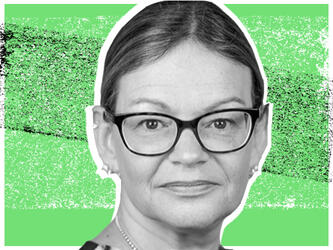Taking action: Key issues from the MRS sustainability summit

More to do
There are a number of industry initiatives to address climate change, such as the Insight Climate Collective and the MRS sustainability pledge. But there is a lot more the market research industry could do to tackle climate change, especially through their work with clients.
Dr Nick Baker, global chief research officer at Savanta and founding member of the Insight Climate Collective, said that research organisations had the ability to persuade companies to take the environment into account, and that it was “negligent” to not raise the issue with clients.
He added that the industry needed to do much more on climate change to be able to act as a credible voice for change. “We have to get our own houses in order,” Baker said. “We absolutely need to demonstrate that we are doing what we can to get our house in order, as that will allow us to push external, outside industry harder.”
Stephen Phillips, chief executive at Zappi and chair of the MRS Sustainability Council, said that market research risked falling behind other industries on sustainability.
“If you look at the client base we work with as an industry, some of them are doing amazing steps towards sustainability,” Phillips said. “Many of them are ahead of us. If we want to play a role in driving the agenda rather than just being asked to add a few questions here and there to a survey, we have to understand where our clients are, where they are trying to go and what we can do to help them along that path.
“There are some clients that are laggards, but many of our clients are significantly more advanced than we are – that doesn’t speak well for what we have done so far, and it is time to catch up.”
The underestimation problem
Ben Page, chief executive of Ipsos, said that not enough change is occurring at a societal level to address climate change, with many organisations and the public prioritising solutions that were easier to achieve – changing light bulbs and recycling – over those that make the biggest difference – getting rid of cars and having fewer children.
“We mostly tend to focus on the quick wins,” Page explained. “We overestimate the changes that might make a difference and underestimate some other more difficult challenges in light of those things making a difference.”
He also said that many businesses were overstating how much of a priority the environment was internally, and needed to do more on sustainability.
“Only one in 10 of the major businesses in this country say they are doing ‘everything they can’ to reduce environmental impact, and a lot are having it down as a second, third or fourth order thing,” Page added. “This probably also includes an element of overstating.”
Better understanding
Suzy Parker, global sustainability commercial lead at GSK Consumer Healthcare, said that it was important to understand the value-action gap, and how to better inform the public whether companies were adequately tackling climate change through their product and initiatives.
“People want to know their purchase are having an impact and it isn’t greenwashing,” she said. “If you want to take people on this journey, it is important they trust the brands that are doing it to deliver what people on this planet need.”
Richard Cope, senior trends consultant at Mintel, said part of the problem was a lack of understanding of what some technical phrases associated with sustainability actually mean in practice: “Do consumers understand what biodegradable packaging actually is, for example.”
He said that research could help show where sustainability fit in with other drivers of purchasing behaviour, such as value, quality and familiarity, and help “plant seeds” to encourage people to engage with complicated or difficult issues around the environment and what humans can do to save it.
Get the public involved
Deliberative policy making, where representative groups of ordinary members of the public are encouraged to debate difficult societal problems and draw up potential solutions, could help in the fight against climate change.
Jacob Ainscough, senior research associate at Lancaster University, said these groups can have significant impacts. “If you get a group of people already representative of the area they are from in a room together discussing complex issues like climate policy, they can come out with some amazing recommendations and suggestions,” he explained.
“We know that helps policymakers, it gives them legitimacy and to navigate difficult issues, but it is also good for the people in the room.”
Ainscough added that more needs to be done to listen to the public, and that deliberative policymaking could help people know how to hold government and business to account.
“They come out of that process as a lay expert – they are not a climate expert, but they have an incredible level of knowledge,” he said. “How can we elevate their voices? It is a useful voice in this debate we just don’t hear from in the way that you could and you should.”

We hope you enjoyed this article.
Research Live is published by MRS.
The Market Research Society (MRS) exists to promote and protect the research sector, showcasing how research delivers impact for businesses and government.
Members of MRS enjoy many benefits including tailoured policy guidance, discounts on training and conferences, and access to member-only content.
For example, there's an archive of winning case studies from over a decade of MRS Awards.
Find out more about the benefits of joining MRS here.














0 Comments